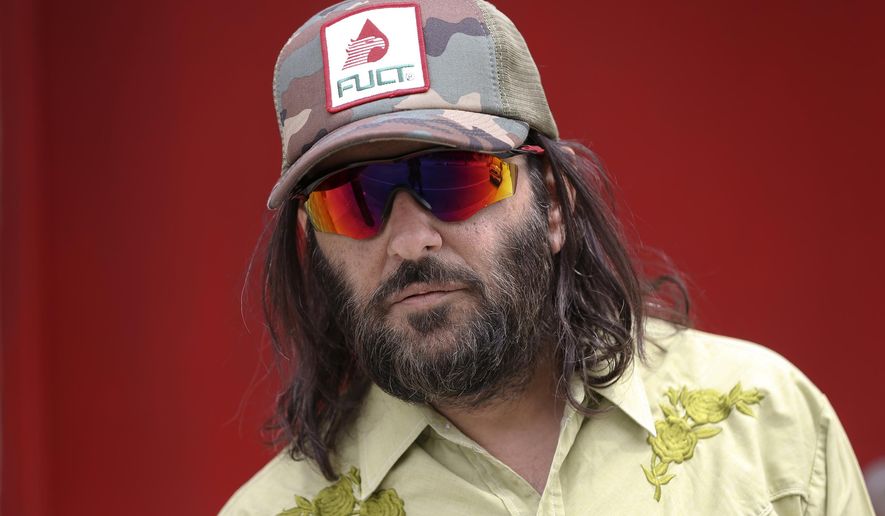The Supreme Court on Monday greenlighted a new class of trademarks, saying the government cannot censor them just because bureaucrats find them vulgar or offensive.
In the case before the justices, a fashion designer wanted to register a mark for his brand “FUCT.” The U.S. Patent and Trademark Office rejected the name as a vulgarity that would violate the Lanham Act’s prohibition of “immoral” or “scandalous” trademarks.
But the court in a 6-3 decision said such government policing treads too much on the First Amendment right of free speech.
“There are a great many immoral and scandalous ideas in the world (even more than there are swearwords), and the Lanham Act covers them all. It therefore violates the First Amendment,” Justice Elena Kagan wrote in the court’s majority opinion.
The ruling completes what the court started two years ago in a case involving The Slants, an Asian American band whose trademark was denied because it was deemed a disparaging stereotype.
In that case, the justices said the government couldn’t police what was disparaging, but they left for another day questions about other standards of immorality or scandal.
The decision Monday erases those other standards. It could create a wave of controversial trademark applications and go a long way toward protecting others such as Washington’s professional football team, the Redskins.
Justice Sonia Sotomayor, writing a partial dissent, warned that the court had opened the floodgates to vile trademarks such as racial epithets.
She said the court could have struck down the part of the law governing immoral trademarks while upholding the government’s power to target those that are scandalous.
“The coming rush to register such trademarks — and the government’s immediate powerlessness to say no — is eminently avoidable,” she wrote.
Justice Samuel A. Alito Jr. wrote his own opinion agreeing with the court’s ruling. He called it an important statement “at a time when free speech is under attack” in the U.S.
But he said there is room for Congress to carefully craft legislation that would outlaw truly vulgar trademarks that don’t communicate any ideas or expressions. He said that would allow the government to stop trademarks such as FUCT.
“The term suggested by that mark is not needed to express any idea and, in fact, as commonly used today, generally signifies nothing except emotion and a severely limited vocabulary,” he wrote.
For the casual observer, which trademarks are accepted and which are rejected can be confusing.
Justice Kagan pointed out that a beverage, “Ko Kane,” had been denied because it sounded like it was glamorizing drug use but the trademark “Say no to drugs — reality is the best trip in life” was granted.
Likewise, “Bong hits 4 Jesus” was denied while “Jesus died for you” was granted.
The FUCT clothing brand extended the debate in a new direction over subversive meanings and sounds.
In her opinion, Justice Kagan explains that designer Erik Brunetti says the name is supposed to be pronounced as four distinct letters, “one after the other: F-U-C-T.”
“But you might read it differently and, if so, you would hardly be alone,” she wryly observed. She pointed out that reviewers at the trademark office clearly thought so.
During oral arguments this year, the justices avoided saying the word aloud. That was not the case two years ago, when the justices and attorneys repeatedly used the word “slants” during the case involving the band.
Simon Tam, who founded The Slants, said Monday that Mr. Brunetti’s case helped finish the work he started.
“I’ve always believed that the battles around language shouldn’t be waged at the trademark office, decided by those who have no connections to the people actually affected. Those skirmishes lead to arbitrary, inconsistent results,” Mr. Tam said.
Fara Sunderji, a lawyer with Dorsey & Whitney, said trademark applicants that have been denied on the basis of vulgarity are likely to file new claims and that the court’s move “cleared the way for a whole new group of F%^*ing trademark registrations.”
Christopher Larus, a lawyer with Robins Kaplan LLP, said the court’s ruling opens the door for other challenges to patent laws.
“The Patent Act prohibits granting of design patents that could be deemed offensive to any race, religion, sex, ethnic group or nationality, such as those which include caricatures or depictions. This prohibition is almost certainly unconstitutional under the standards set forth in the court’s recent … decision,” he said.
• Alex Swoyer can be reached at aswoyer@washingtontimes.com.




Please read our comment policy before commenting.